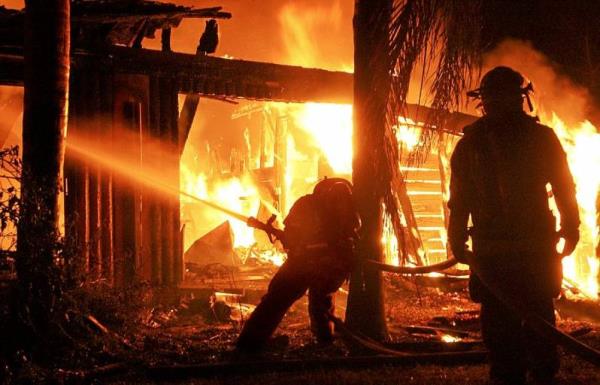By Jolene Ogle
MEMBER for Noosa Glen Elmes has slammed the Government’s new legislation that will see all Queensland homes fitted with interconnected, photoelectric smoke alarms.
The legislation, which will roll out over 10 years, requires every QLD home to have the alarms fitted in every bedroom and hallway so no matter where the fire starts, an alarm will sound in the bedrooms to wake the occupants.
The legislation follows recommendations handed down after the 2011 Slacks Creek fatal house fire where 11 people died.
Mr Elmes said the Labor Government’s legislation was costly, cumbersome and “will do nothing to reduce the loss of lives and property from house fires for another decade”.
“It concerns me that under Labor, life-saving legislation comes with a huge price tag which for many people in the Noosa electorate is unaffordable,” he said.
“It is overly complex and will not come into full effect for another 10 years – which achieves only one thing and that is to put people off from making important changes to protect themselves from the devastating impact of fire.”
Mr Elmes said his party’s plan that required residents to swap existing ionised alarms with the recommended photoelectric alarms was better because it would “be implemented in three years, protect residents sooner and was more affordable”.
“What could have been the cost of a few new smoke alarms replaced over a three-year period under the LNP, now includes the expense of a qualified electrician and many additional alarms over and above what is required now. That can easily amount to between $600 and $1000.”
Mr Elmes said many people in Noosa don’t have “that kind of money to spare” and doubted many residents would make the change-over a priority due to the 10-year compliance roll out.
“There is a domestic house fire in Queensland every 4.7 hours. By the time Labor’s ambitious plan has been achieved, it is estimated that 20,000 houses will be destroyed by the fire and 200 lives will have been lost,” Mr Elmes said. “A 10-year buy-in and a convoluted list of over-the-top requirements is nonsense.”
When announcing the new legislation, Fire and emergency Services minister Bill Byrne said Queensland households would be the safest in the country.
“By having the alarms interconnected, it won’t matter which part of a house a fire might start in, the alarm closest to you will sound and if you are asleep, an alarm will sound in your room, even if the area is closed off to the rest of the house,” he said.
“Research shows photoelectric, interconnected smoke alarms are the most effective on the market for alerting people to fires early.
“I am proud Queensland is now the national leader on this issue making sure we are doing all we can to keep residents safe.”
Smoke Alarm Legislation – How does it affect you?
There will be a 10-year phased rollout of the legislation to allow ample time for residents to have the alarms installed correctly.
The hardwired interconnected alarms will need to be installed by a qualified electrician.
For rural residents who may have difficulty finding an electrician, there is an option to install photoelectric alarms with a 10-year lithium battery that has the capability to connect with other alarms wirelessly.
All houses being built or significantly renovated will need to comply with the new legislation upon completion after 1 January 2017.
All houses leased or sold will need to comply with the legislation within five years.
All owner-occupied private dwellings will need to comply within 10 years.
Any smoke alarm being replaced after 1 January 2017 must be a photoelectric alarm.







![[READER COMPETITION] – Win a family ticket to Hudsons Circus](https://noosatoday.com.au/wp-content/uploads/2026/02/Hudsons-circus-1-100x70.png)
